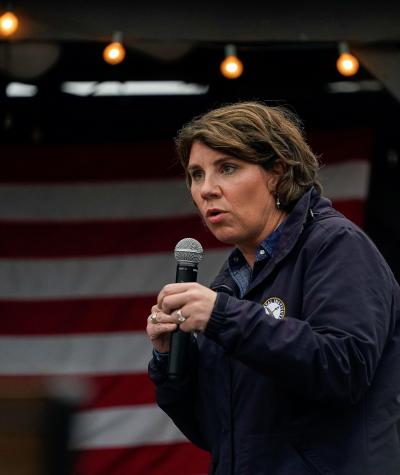Campaign Legal Center (CLC) has filed complaints with the Federal Election Commission (FEC) alleging that two separate super PACs violated federal law by coordinating over $8 million in expenditures to two Democratic Senate campaigns in Mississippi and Kentucky.
Ditch Fund and March On PAC, illegally coordinated with the U.S. Senate Campaigns of Amy McGrath and Michael Espy. Both super PACs and the campaigns they supported contracted with the same vendor and a common employee.
The scheme resulted in the evasion of campaign contribution limits and shielded millions of dollars in political spending from public scrutiny.
The super PACs that supported the McGrath and Espy campaigns used Targeted Platform Media (TPM) to place their ads. TPM appears to be a shell company for the District of Columbia-based firm Buying Time LLC.
The McGrath and Espy campaigns both used Buying Time to place their ads. Both firms have a common employee, phone, and fax number.
Ditch Fund super PAC spent at least $8 million supporting Amy McGrath’s Senate candidacy and opposing Sen. Mitch McConnell in Kentucky. March On PAC spent $50,000 supporting Mike Espy’s senate run in Mississippi.
In both cases the same employee placed many of the ads for the senate campaigns and strategically placed the super PACs’ ads supporting those same campaigns.
Campaign finance law prohibits the coordination between candidates and super PACs. In order to preserve their independence, FEC rules limit how a vendor may work for both a candidate and an outside group supporting that candidate to prevent a vendor from being used as a conduit for coordination.
Otherwise, the common vendor could funnel strategic information to the outside group.
There are restrictions on how a vendor may work for both a candidate and an outside group supporting that candidate to maintain independence. Using a shell company to get inside information and coordinate their advertisements created an unfair advantage, violated the law, and may have resulted in millions of dollars in illegal and excessive in-kind contributions.
The violations in these complaints are similar to the complaints CLC filed in 2018 and 2019 against the National Rifle Association (NRA).
Super PACs are not supposed to act as arms of campaigns. The FEC should make that clear by enforcing the law here. To reduce political corruption, we need real transparency about who is spending big money on elections so that politicians can no longer receive unlimited secret money from wealthy special interests to support their campaigns.
